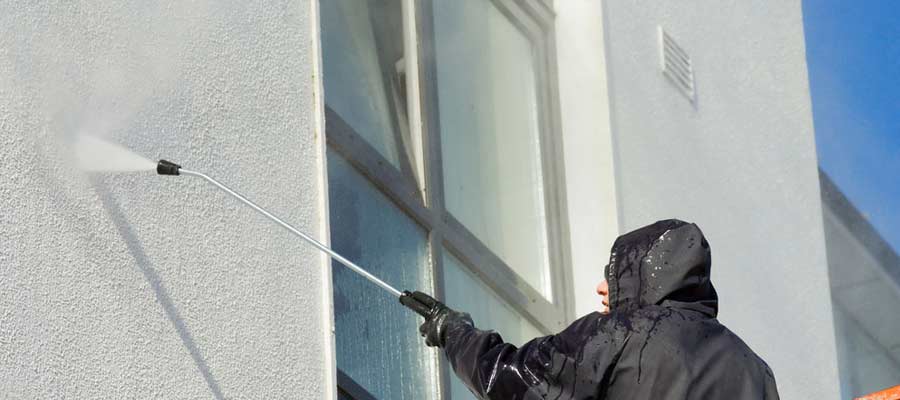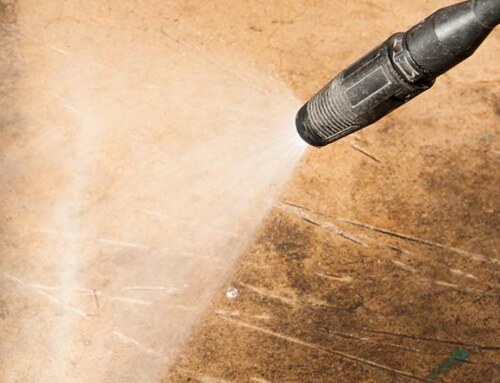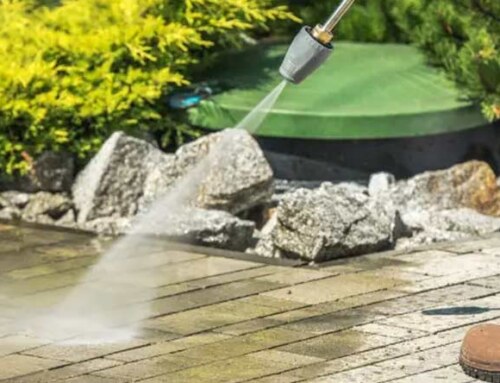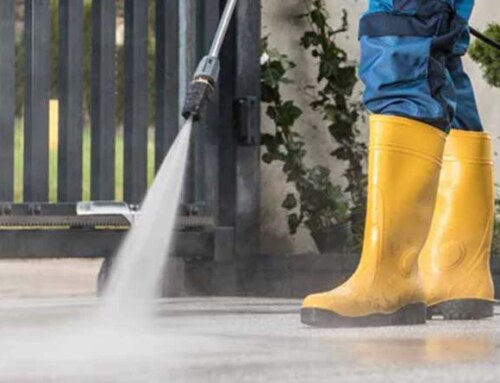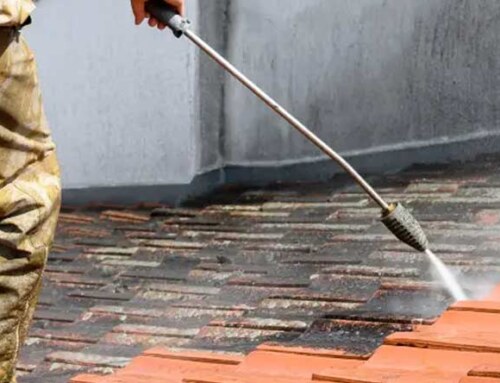Power washing has been known to be an excellent tool for deep cleaning your home’s exterior. But did you know it can also be a fantastic way to rejuvenate your brick surfaces, making them look clean and almost new? Whether you’re dealing with years of grime or need a seasonal clean-up, there’s a method and a tip for every situation. But while power washing bricks might seem straightforward, there are essential precautions to ensure you don’t inadvertently cause damage.
Power washing, sometimes called pressure washing, uses high-pressure water spray to remove dirt, grime, mold, and other contaminants from surfaces. It’s especially effective for bricks, removing the buildup that can make even the most well-maintained homes look aged and neglected.
- Enhanced Curb Appeal: A clean brick surface can dramatically improve the look of your home.
- Preventive Maintenance: Regular cleaning can prevent mold and mildew buildup.
- Increased Property Value: Clean, well-maintained exteriors can boost your home’s market value.
Effective Methods for Power Washing Bricks
Selecting the right power washer is crucial. Bricks are durable but can be damaged by excessively high pressure. Generally, a power washer with a PSI (pounds per square inch) between 500 and 2000 is effective for brick surfaces.
| Equipment Type | Recommended PSI |
| Light-duty | 500 – 1200 |
| Medium-duty | 1200 – 2000 |
Before you start, could you remove any loose debris from the area? This could be leaves, loose dirt, or any object that might be moved or damaged by the high-pressure water.
Depending on the severity of the grime, you can use various cleaning solutions. A mixture of water and a mild detergent usually suffices for light cleaning. For more stubborn stains, consider a specialized brick cleaning solution. Always follow the manufacturer’s guidelines on how to mix and apply these solutions.
When power washing, technique matters. Here’s a sequential guide to follow:
- Start with a Test: Always test the pressure and cleaning solution on a small, inconspicuous area to ensure it won’t damage the brick or mortar.
- Even Strokes: Hold the nozzle approximately 12 inches from the brick surface to maintain an even distance. Use consistent, even strokes to avoid over-cleaning one area.
- Top to Bottom: Clean from the top of the wall or area downward. This prevents streaking and ensures dirty water doesn’t ruin a freshly cleaned section.
- Rinse Thoroughly: After applying the cleaning solution and power washing, rinse the brick thoroughly with clean water to remove any remaining cleaner residue.
Once you’ve finished, allow the brick to dry completely. Inspect the area for any missed spots or potential damage. Consider applying a sealant to protect your brick surfaces from future dirt buildup and moisture penetration.
Key Precautions When Power Washing Bricks
While bricks are tough, they aren’t invincible. Taking the right precautions can mean the difference between a beautifully cleaned surface and costly repairs.
Excessive pressure can erode the surface of bricks and the mortar holding them together, leading to long-term damage. You can stick to the recommended PSI levels and always start at a lower pressure to see how the brick responds.
Furthermore, while using strong chemicals to get rid of tough stains might be tempting, these can sometimes do more harm than good. Acidic or overly potent cleaners can weaken the brick and damage the mortar. Please be sure to stick with specialized cleaning solutions intended for brickwork.
Holding the power washer nozzle too close to the brick can concentrate the pressure in a small area, potentially causing damage. Please keep a distance of at least 12 inches from the surface and adjust as needed based on the results.
Weather plays a significant role in the effectiveness and safety of power washing. It’s best to choose a dry day with moderate temperatures. Wet weather or freezing conditions can cause water to seep into the brick and mortar, potentially leading to cracks and other issues when temperatures drop.
Use tarps or plastic sheeting to protect surrounding plants, furniture, and other objects from water and cleaning solutions. This ensures these items aren’t damaged and keeps them from being inadvertently cleaned and potentially altered in appearance.
Sometimes, basic power washing isn’t enough for persistent stains like mold, mildew, or oil. Here’s how to handle some common tough spots:
Mold and mildew are not only unsightly but can also be health hazards. Consider using a mixture of water and white vinegar or a specialized mold cleaner. Spray the solution onto the affected areas, let it sit for 10-15 minutes, and then power wash as usual.
Oil stains, often found in garages or driveways, can be tricky. Before power washing, apply a baking soda and water paste to the affected area and allow it to sit for 15-30 minutes. Scrub with a brush before power washing.
Efflorescence is the white, powdery substance that can appear on brick surfaces caused by salt deposits. A mild acid cleaner, designed explicitly for efflorescence, can be used. Always follow manufacturer instructions for dilution and application.
Contact a professional power washing service, such as Klein Pressure Washing, if unsure. They have experience cleaning all sorts of exteriors.
Professional Services: When to Call the Experts
There are instances when calling in professional power washers is the best course of action. Here’s when you should consider professional help:
- If the area requires extensive cleaning, professionals will have the equipment and workforce to do the job efficiently.
- For highly stubborn stains that resist regular cleaning methods, professionals have specialized tools and solutions that can achieve better results.
- If your bricks or mortar already show signs of damage, professionals can assess and adjust their techniques to prevent further harm.
- Older, fragile bricks require a special touch. Professional power washers can clean these without compromising their structural integrity.
Klein Pressure Washing has had plenty of opportunities to work on brick power washing projects, ensuring we can easily take care of yours without damaging your property! Power washing bricks is an effective method to restore the pristine look of your home or patio. With the right equipment, techniques, and precautions, we help you achieve impressive results without causing damage. Please feel free to contact us now for more information.

